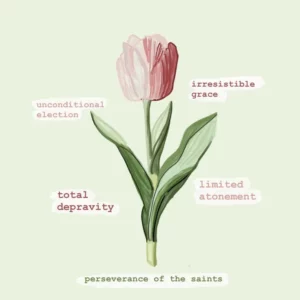Calvinism, a significant branch of Protestant Christianity, unfolds a profound and distinctive theological narrative that has left an indelible mark on the religious landscape. Much like its contemporary, Lutheranism, Calvinism emerged during the 16th century Reformation, led by a visionary theologian – John Calvin. In this comprehensive exploration, we delve into the historical origins, core beliefs, and enduring traditions of Calvinism, shedding light on its enduring impact in the world of Christianity. From the intricate concepts of predestination to the simplicity of Calvinist worship, the journey of Calvinism is one of intellectual rigor, religious devotion, and a legacy that continues to shape the faith of millions. Join us as we embark on a journey to unravel the intricacies of this profound theological tradition.
Table of Contents
Historical Origins
The journey of Calvinism into the religious sphere began when John Calvin published his seminal work, “Institutes of the Christian Religion,” in 1536. Calvin’s theological treatise laid the groundwork for a systematic understanding of Protestant doctrine, and it gained widespread recognition. His ideas diverged from those of Martin Luther in certain aspects, which eventually led to the distinct theological path of Calvinism.
Key Beliefs

Calvinism is distinguished by several key doctrinal beliefs, including:
- Predestination: Central to Calvinist theology is the doctrine of predestination. Calvin believed that before the creation of the world, God elected certain individuals to be saved (the elect) and others to be damned (the reprobate). This concept is sometimes referred to as “double predestination” and is a unique aspect of Calvinism.
- Total Depravity: Calvinists hold that human beings are born in a state of total depravity, meaning that they are inherently sinful and incapable of choosing God without divine intervention.
- Unconditional Election: In line with the doctrine of predestination, Calvinists maintain that God’s choice of the elect is unconditional, not based on anything they do or merit. This doctrine emphasizes God’s sovereignty in salvation.
- Limited Atonement: Unlike some other Protestant denominations, Calvinists teach that Christ’s atonement on the cross was intended only for the elect, securing their salvation.
- Irresistible Grace: Calvinists assert that when God extends His grace to the elect, it is irresistible and efficacious, ensuring their conversion and salvation.
- Perseverance of the Saints: Also known as “eternal security” or “once saved, always saved,” Calvinists believe that those who are truly elect will persevere in faith and cannot lose their salvation.
Traditions and Practices
Calvinism has a rich history of theological writings, with John Calvin’s “Institutes of the Christian Religion” being a cornerstone of this tradition. Calvinists also engage in the study of the Bible, emphasizing expository preaching and systematic theology.
In worship, Calvinism is characterized by a sense of reverence and simplicity. Calvinist worship services often include the singing of Psalms and the reading of Scripture. While the liturgical practices may vary among Calvinist churches, the emphasis on the preaching of the Word remains a constant.
Calvinism gave rise to the Westminster Confession of Faith, a comprehensive statement of Reformed theology. This confession has served as a doctrinal standard for many Reformed and Presbyterian traditions within Calvinism.
Conclusion
Calvinism, stemming from the profound insights of John Calvin, stands as a significant branch of Protestant Christianity. Its distinctive beliefs, including predestination and total depravity, have shaped the theological landscape for centuries. The emphasis on God’s sovereignty and the authority of Scripture has left an indelible mark on the way millions of Christians understand their faith.
While Calvinism shares historical roots with Lutheranism and other Protestant traditions, its unique theological system has garnered a dedicated following. The enduring influence of Calvinism continues to permeate the beliefs and practices of Christian communities worldwide, contributing to the rich tapestry of Protestant Christianity.

































